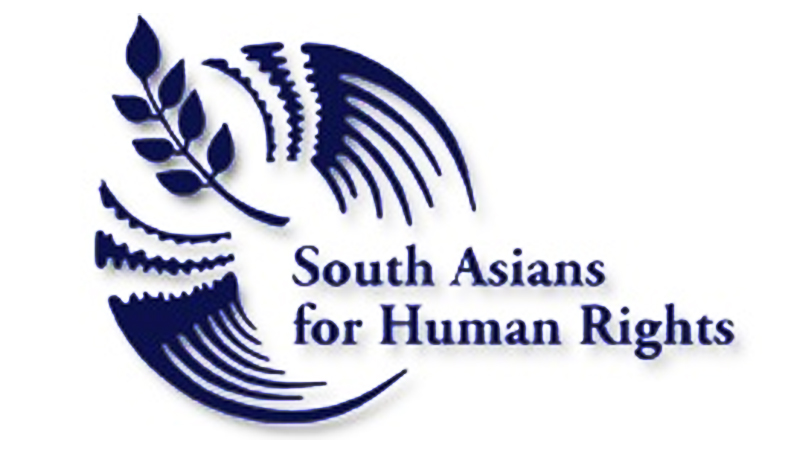African Court Orders Tanzania to Guarantee Civil and Political rights. A Victory for Democracy!
LHRC – Legal and Human Rights Centre
Press release
African Court Orders Tanzania to Guarantee Civil and Political rights. A Victory for Democracy!
Addis Ababa, 18 June 2013 – FIDH and its member organisation in Tanzania, the Legal and Human Rights Centre (LHRC), welcome the African Court on Human and Peoples’ Rights’ recent ruling ordering the Republic of Tanzania to guarantee citizens’ rights to freely participate in the government of their country, either directly or through freely chosen representatives. Our organisations call on the Tanzanian authorities to take all necessary measures to give rapid effect to this Court decision.
In June 2011, the Tanganyika Law Society (TLS), the Legal and Human Rights Centre (LHRC) and Reverend Christopher Mtikila, filed an application before the African Court on Human and Peoples’ Rights (African Court) contesting the legality of the Eight (1992) and Eleventh (1994) Amendments of the Constitution which require all persons running for Presidential, Parliamentary and Local elections to be a member of and/or to be sponsored by a political party, thus prohibiting independent candidates from contesting these elections. The Applicants submitted that the government of Tanzania had violated the provisions of the African Charter on Human and Peoples’ Rights and the International Covenant on Civil and Political Rights which guarantee freedom of association, non discrimination, equality before the law and the right for a citizen to participate freely in the government of his/her country, either directly or through freely chosen representatives.
In its June 14, 2013 decision, the African Court founded that Tanzania had violated Articles 2, 3, 10 and 13.1 of the African Charter and “directed the authorities to take constitutional, legislative and all other necessary measures within a reasonable time to remedy these violations”. “ This decision of the African Court is of considerable importance in that it specifies Tanzania’s obligations with regard to democratic principles, as set forth in the African Charter. It further sets precedent beyond borders of Tanzania, especially in a context where several African countries, including Guinea-Conakry, Zimbabwe or Mali, are preparing for elections ” declared Ms. Sheila Nabachwa, FIDH Vice President and East Africa Focal Point for the Coalition for an effective African Court.
“ This is a true victory for us, particularly timely if we consider the current Constitutional Review Process our country is going through and the forthcoming 2015 general elections. Not only does it create momentum for the authorities to comply with the Court’s ruling, but it also gives Tanzania the opportunity to adopt a Constitution that is fully consistent with its human rights obligations ” declared Ms. Helen Kidjo-Bisimba, LHRC Executive Director.
The adoption, in 1998, of the Protocol establishing the African Court was a major step forward for the protection of fundamental rights on the African continent. Operational since 2006, the Court, whose decisions are binding, has jurisdiction over all cases submitted to it concerning State parties’ compliance with both regional and international human rights instruments. Individuals and NGOs may have direct access to the African Court provided that the incriminated State has made the declaration under Article 34.6 of the Protocol establishing the Court. To date, only 6 State parties to the Protocol, including Tanzania, have made such a declaration authorising direct access. This low number of states allowing individuals and NGOs to appeal directly to the Court has largely contributed to undermining the effectiveness of the Court.
“ This decision demonstrates two fundamental things. First of all, it clearly shows that the African Court has a significant role to play in the interpretation of the human rights instruments freely adopted and ratified by our governments. Besides, it is another illustration of the positive role that can be played by NGOs and individuals in guaranteeing the effectiveness of the Court ” declared Mr. Mabassa Fall, FIDH Representative to the African Union.
In a context where Tanzania is undergoing a Constitutional Review Process and preparing for 2015 General Elections, FIDH and LHRC call on the authorities to implement the decision of the Court without further delays and to consider ratifying the African Charter on Democracy, Elections and Governance.
For further information on the case Tanganyika Law Society and The Legal and Human Rights Centre and Reverend Christopher Mtikila v. The United Republic of Tanzania, please consult the website of the African Court.
Press contacts:Arthur Manet (French, English, Spanish) – Tel: +33 6 72 28 42 94 / +90 543 847 2405 (in Istanbul) – Email : presse@fidh.org
Audrey Couprie (French, English, Spanish) – Tel: +33 6 8 05 91 57 / +90 543 847 2402 (in Istanbul) – Email : presse@fidh.org
Follow us on Twitter.
No virus found in this message.
Checked by AVG – www.avg.com
Version: 2012.0.2242 / Virus Database: 3199/5922 – Release Date: 06/18/13
Category: Media Monitoring






